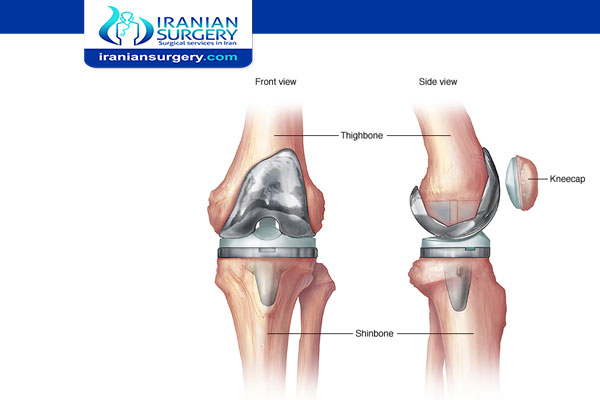What to Expect after Surgery?
How long do you have pain after knee replacement surgery?
Knee Replacement Surgery pain
Typically, knee replacement surgery hurts more than hip replacement surgery. General pain may occur for up to several weeks following a total knee replacement. To ease your pain raise (elevate) your legs and apply a cold pack to your incision after activities such as exercises or walking. This can help reduce swelling and pain.
You may feel some discomfort in your new joint.
Take the prescription pain medicine as instructed by your surgeon.
Read more about: Knee Replacement Surgery Recovery
Read more about: Knee pain 1 year after meniscus surgery
Read more about: Total Knee Replacement
What to Expect after Surgery?
You can expect to be up on your feet within a day. That might be hard to do on your own at first. So you may need parallel bars, crutches, a walker, or a cane for a while to get up.
Usually, you can expect a big improvement in flexibility and much less pain within a month. It’s important to exercise your knee often, to keep down swelling and to strengthen your muscles.
You might need help from a physical therapist, who will go through a series of exercises to strengthen your repaired knee. How long you’ll need physical therapy depends on your health and how motivated you are to recover from your surgery.
The most important step in finding a solution to persistent discomfort is to first determine the cause of the pain. Without this knowledge, it is very difficult to find an appropriate treatment. The most common causes of pain after knee replacement include:
- Loosening of the implant: This is most often the cause of pain years or decades after the knee replacement; however, it is seldom the cause of persistent pain right after surgery.
- Infection: Infection is a serious and worrisome concern. Any increase in pain after knee replacement should raise concerns for infection. Most often, the signs of infection are obvious, but subtle infections may be the cause of persistent discomfort.
- Patellofemoral (kneecap) problems: Kneecap problems are a common cause of knee replacement pain. Significant forces are applied to the kneecap, even with normal activities, such as getting up from a chair or walking down the stairs. Getting a kneecap to perform well with a replacement can be technically challenging even for a skilled surgeon.
- Alignment problems:Many patients focus on the knee replacement implant brand or type. But most surgeons will tell you the brand matters much less than how well the implant is put in. A poorly aligned implant may not function well, no matter the brand. Surgeons are investigating if computer navigation will help improve implant alignment.
Read more about: Knee replacement surgery cost
Read more about: Knee replacement surgery complication
Read more about: Knee Ligament Surgery
How long do you have pain after knee replacement surgery?
General pain may occur for up to several weeks following a total knee replacement. Swelling typically lasts for 2 to 3 weeks after surgery, but may persist for as long as 3 to 6 months and Bruising may last for 1 to 2 weeks following surgery.
Read more about: knee replacement surgery risk
Read more about: Knee Replacement Surgery Time
Read more about: What to expect after arthroscopic knee surgery?
10 common question about knee replacement surgery pain
[kkstarratings]


